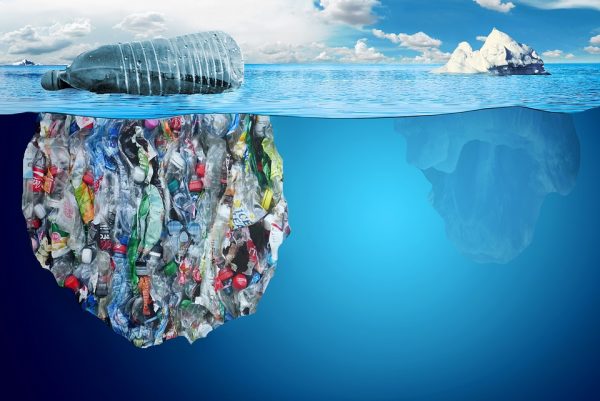
Plastic pollution is devastating ocean ecosystems, turning them into “toxic repositories;” documentary spurs action
Jhoanna Robinson

(Natural News) Sir David Attenborough, an English veteran broadcaster and naturalist who recently made a documentary on plastic and its harmful effects on the environment, said that the Earth’s oceans are slowly becoming a toxic depository due to the evil deeds of the planet’s dwellers.
Describing one scene from the documentary, Attenborough said, “In it, as snowflakes settle on the ground, a baby albatross lies dead, its stomach pierced by a plastic toothpick fed to it by its own mother, having mistaken it for healthy food. Nearby lies plastic litter that other hungry chicks have regurgitated.”
Attenborough said plastic is a bane to the environmental movement, and that concrete action should be done to prevent its widespread use. “There are fragments of net so big they entangle the heads of fish, birds, turtles, and slowly strangle them. Other pieces of plastic are so small that they are mistaken for food and eaten, accumulating in fishes’ stomachs, leaving them undernourished.”
To render as evil something that is necessary to preservation, distribution, and storage over a multitude of products is problematic. To also wage war against something inanimate is reminiscent of other failed conflicts, the war against drugs, or the war against terrorism, for that matter.
According to Selwyn College at the University of Cambridge commonwealth scholar Dr. Binoy Kampmark, guilty consciences are powerful motivators, with the most guilt belonging to the affluent, such as Britain’s Prime Minister Theresa May. “In the U.K. alone, the amount of single-use plastic wasted every year would fill 1,000 Royal Albert Halls.”
Bright Blue, an independent liberal conservative think tank which is mostly pro-Tory, conducted a poll that showed that many who refused to vote for May’s party in the last general election thought that environmental initiatives are key to a campaign. The poll “shows that climate change is the second highest issue younger people want senior politicians to discuss more, second only to health, and actually the top issue for 18- to 28-year-olds”.
In getting on the bandwagon against plastic, May tried to convince critics that getting Britain out of the European Union would not mean that there would be a lowering of environmental standards. Her government, she told the audience at the London Wetland Centre, would “leave the natural environment in a better state than we found it”.
May then suggested a plan – albeit slow-moving – whose goal is to eliminate all avoidable plastic waste in the U.K. by 2042. “Plastic-free aisles” are going to be implemented in supermarkets, and taxes and charges on takeaway containers are being laid out. None of such measures need Parliamentary regulation, maintaining the old British approach of gradualism in action.
Companies such as Cincinnati, Ohio-based consumer goods corporation Procter & Gamble, which are the manufacturers of the Head & Shoulders shampoo, and others, have collaborated to make a recycled shampoo bottle using plastic found in beaches.
More on ocean plastic pollution
Eight percent of marine debris comes from land-based sources, such as litter, trash, and debris from construction, ports and marinas, commercial and industrial facilities, and trash blown out of garbage containers, landfills, and trucks. Ocean-based sources, such as discharges from ships and discarded fishing gear, make up the other 20 percent.
Food containers and packaging make up the highest component of the municipal solid waste stream (80 million tons or 31.7 percent). These items, coupled with plastic bags, also make up the largest component of marine debris (barring items less than five millimeters such as pre-production plastic pellets, polystyrene pieces, and fragments). (Related: The plastic pollution problem is wide AND deep: Study finds sea animals from the deepest parts of the ocean, 7 miles down, have plastic in their stomachs.)
For more stories regarding the status of water in all its forms, head on straight to CleanWater.news.
Sources include:
https://www.naturalnews.com/2018-02-07-plastic-pollution-is-devastating-ocean-ecosystems-turning-them-into-toxic-repositories.html
